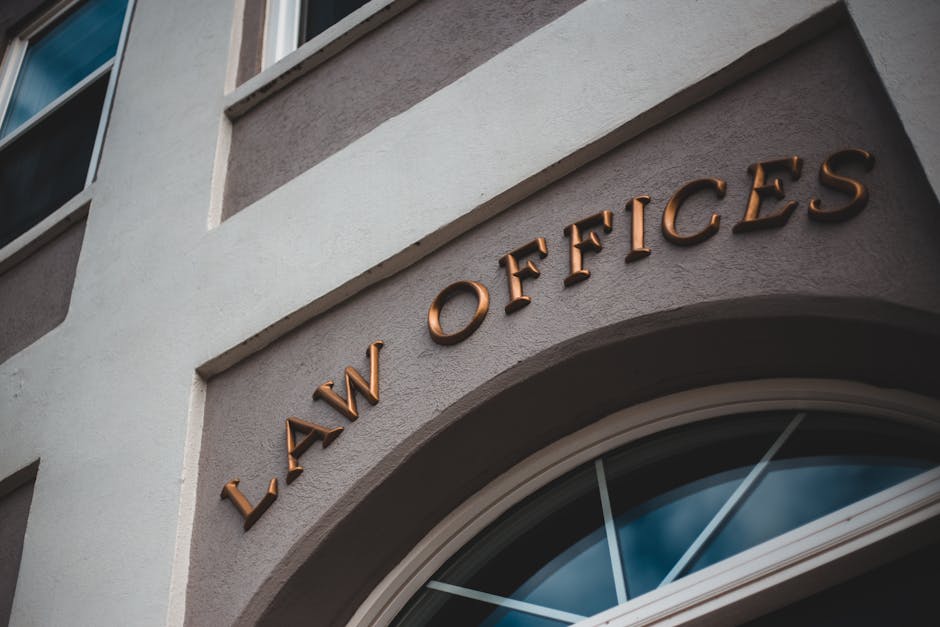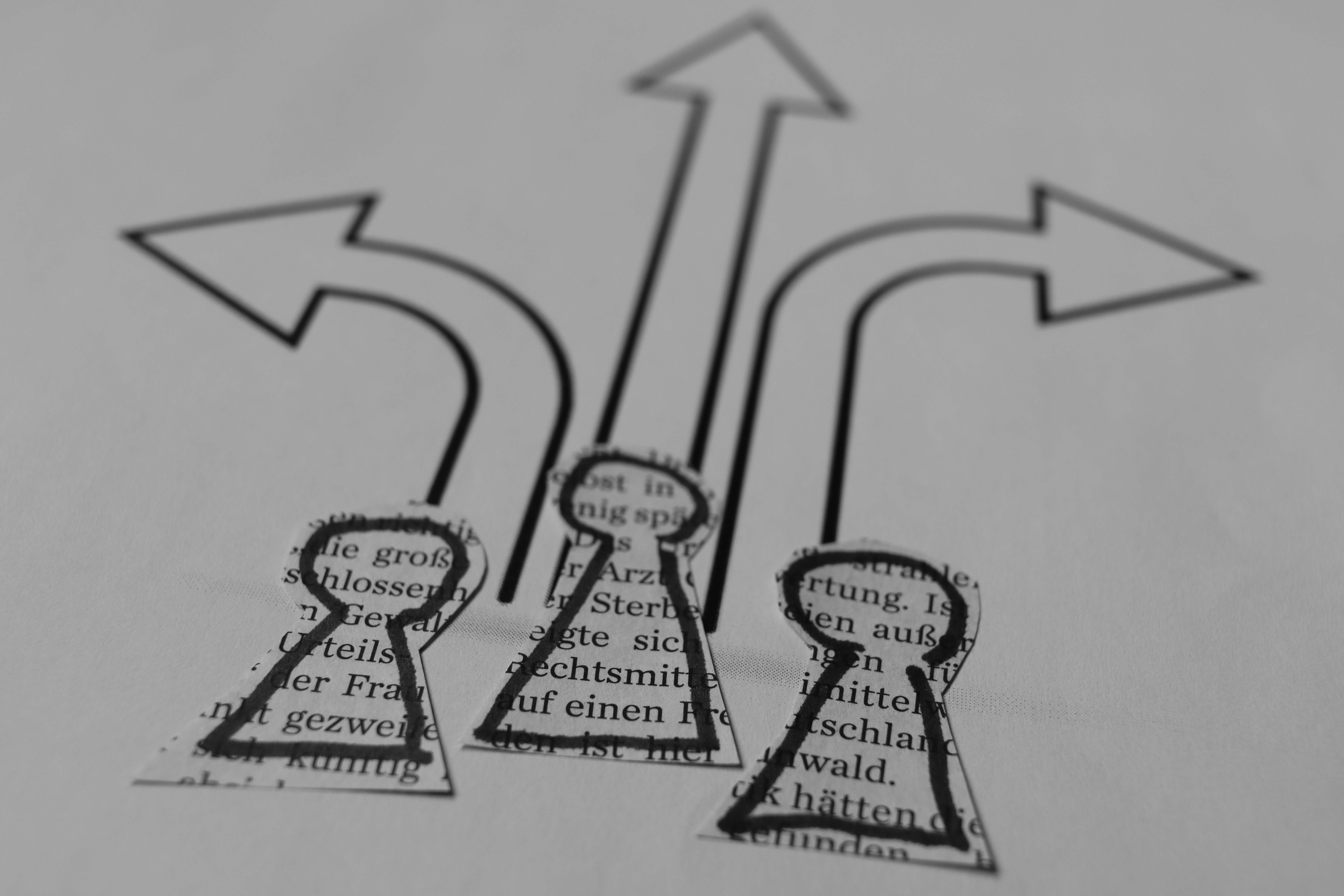Decoding Smart Contracts: Legal Frameworks for DAOs in 2025
In the digital era where decentralized technologies are reshaping entire industries, understanding the legal frameworks around decentralized autonomous organizations (DAOs) and smart contracts has never been more crucial. As we step into 2025, the importance of navigating these complex legal waters becomes even clearer, especially for innovators, entrepreneurs, and legal professionals. In this post, we will explore what smart contracts are, how they interact with DAOs, and the evolving legal landscape surrounding these technologies. So, buckle up as we embark on this journey to decode the future of legal frameworks for DAOs and smart contracts!
Understanding Smart Contracts and DAOs

The Basics: What Are Smart Contracts?

Smart contracts are self-executing contracts with the terms of the agreement directly written into code. They run on blockchain technology, allowing them to automatically enforce and execute contractual agreements without the need for intermediaries. This revolutionary concept significantly reduces transaction costs and increases efficiency. As a result, businesses across various sectors are beginning to adopt this technology for applications ranging from real estate transactions to supply chain management.
Decentralized Autonomous Organizations (DAOs)

DAOs are organizations governed by smart contracts rather than a hierarchical leadership structure. Instead of a traditional board of directors or executives making decisions, stakeholders manage the organization collectively, often through voting mechanisms embedded within the smart contracts. DAOs leverage blockchain’s transparency, promoting a trust-based environment where stakeholders contribute to decision-making.
The Intersection of Smart Contracts and DAOs

The relationship between smart contracts and DAOs forms the backbone of decentralized governance. Smart contracts enable DAOs to operate seamlessly, executing decisions and transactions without human intervention. This mix of technology and self-governance creates a unique environment ripe for innovation, but it also raises significant questions about accountability, legal status, and regulatory oversight.
The Legal Landscape for Smart Contracts and DAOs in 2025

As smart contracts and DAOs gain traction, legal systems worldwide are grappling with how to classify and regulate them. In this section, we’ll discuss the critical legal considerations and trends shaping the future of smart contracts in relation to DAOs.
Regulatory Compliance: The Quest for Clarity

In 2025, one of the most pressing issues for DAOs and smart contracts is regulatory compliance. Governments and legal frameworks still struggle to categorize these technology-driven entities accurately. Are DAOs entities in their own right? Can smart contracts be viewed as enforceable legal agreements? To tackle these questions, jurisdictions are likely to draft new legislation that explicitly recognizes the unique nature of decentralized governance and automated agreements. For example, the U.S. Uniform Law Commission is working on drafting the Uniform Electronic Transactions Act (UETA) to address some of these challenges.
Jurisdictional Issues

Jurisdiction is another critical factor affecting smart contracts and DAOs. Since blockchain is inherently global, disputes may arise regarding which jurisdiction's laws apply. This complicates enforcement options for smart contracts, raising questions on how to settle grievances and enforce rights. Clear guidelines from governments and international bodies will be necessary to resolve these jurisdictional ambiguities and provide legal certainty.
Intellectual Property Rights

As DAOs continue to create and operate, questions about intellectual property rights will become paramount. Smart contracts can manage and automate IP licensing, but the legal recognition of these agreements can vary. Stakeholders need to understand how copyright, trademarks, and patents intersect with DAO activities. Additionally, the rapid advancements in AI further complicate this landscape, as seen in the legal implications of AI-created works.
Taxation and Financial Regulations

The tax treatment of transactions conducted via smart contracts remains unclear. In 2025, professionals with DAOs must navigate the intricacies of tax compliance, including income, capital gains, and sales tax implications. Additionally, financial regulations around anti-money laundering (AML) and combating the financing of terrorism (CFT) will affect how DAOs operate. Consequently, understanding the tax landscape and regulatory compliance is crucial for maintaining the legitimacy of such entities.
Building Trust: Legal Best Practices for DAOs

Implementing Transparency Measures

Transparency is a cornerstone of trust in any organization, and DAOs are no exception. By making voting mechanisms, financial transactions, and decision-making processes clear and accessible, organizations can build credibility among stakeholders. Using blockchain's immutable ledger can help ensure that all actions taken by the organization are recorded and auditable.
Establishing Clear Governance Models

To prevent disputes and misunderstandings, DAOs should adopt clear governance models. This includes well-defined roles for stakeholders, transparent decision-making processes, and conflict-resolution mechanisms. Building these frameworks, while considering legal insights, can foster a sense of ownership and encourage active participation from community members.
Contractual Clarity: The Role of Legal Frameworks
Even though smart contracts can automate agreements, they should still incorporate legal frameworks to ensure enforceability. Contractual clarity is essential; parties must be aware of their rights and obligations under both the code and the law. Engaging legal professionals in the development of smart contracts can help identify potential pitfalls and provide insight into statutory compliance.
The Future of Smart Contracts and DAOs: Emerging Trends
The Rise of Hybrid Models
As the legal framework surrounding smart contracts and DAOs evolves, we may see the emergence of hybrid models that combine traditional corporate structures with decentralized governance. These models can provide the best of both worlds: the efficient self-governance of DAOs alongside the accountability and legal recognition associated with traditional organizations. Companies could leverage the benefits of decentralized decision-making while still complying with regulatory expectations.
Increased Focus on Interoperability
Interoperability between different blockchain platforms and legal systems will become increasingly important as the demand for DAOs grows. The ability for smart contracts to interact across various ecosystems will promote broader adoption. Legal frameworks must adapt to ensure that disparate systems can seamlessly communicate, further enabling innovation while minimizing potential legal conflicts.
The Evolution of Dispute Resolution Mechanisms
Innovations in dispute resolution may redefine how legal conflicts arise between DAOs and their stakeholders. We could see the rise of decentralized arbitration platforms or smart contract-based resolution systems. As such solutions gain traction, they will necessitate ongoing legal considerations to ensure enforceability and adherence to jurisdictional standards.
Preparing for Change: Next Steps for Stakeholders
Staying Informed
Stakeholders should prioritize staying informed about legal developments and evolving best practices in the DAO and smart contract space. Regularly following thought leaders, legal professionals, and industry updates will ensure you’re prepared for changes and innovations on the horizon. Engaging with resources such as the Harvard Business Review can provide valuable insights into legal trends affecting decentralized platforms.
Engaging with Legal Experts
Collaborating with legal professionals who are well-versed in smart contracts and DAOs is essential. Their expertise can guide your organization in navigating the complexities of compliance, contract drafting, and governance models. Establishing legal partnerships early on can help mitigate potential issues and ensure a smoother operational process.
Developing Scalable Solutions
Finally, as DAOs and smart contracts evolve, stakeholders must consider scalability. Designing systems—be they technological or legal—that are scalable will position your organization for future growth. Aim for flexibility in your governance frameworks and technical infrastructure to allow for adaptation as the landscape continues to shift.
Final Thoughts
The legal frameworks governing DAOs and smart contracts are still evolving, but their potential is boundless. By understanding the context and keeping informed about developments, stakeholders can effectively navigate the complexities associated with these technologies. As we move deeper into 2025 and beyond, the intersection of law and decentralized governance will increasingly shape the landscape of innovation and collaboration. Prepare today to become a proactive participant in this exhilarating legal frontier!



